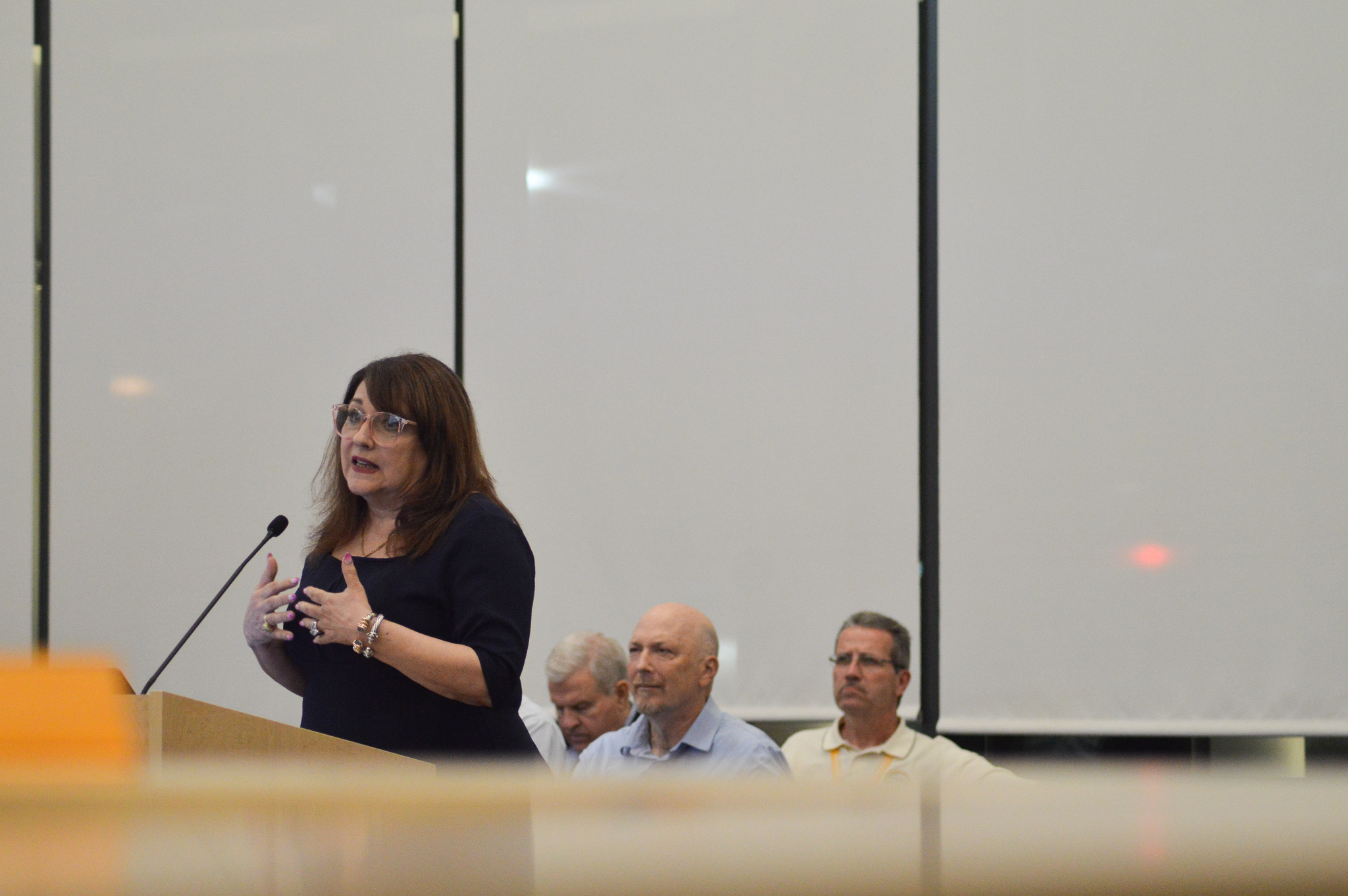College Park residents and University of Maryland students could soon have access to mental health care and social services through a program called Care Solace, according to a presentation given during the College Park City Council meeting on Tuesday.
The service coordinates mental health care with municipalities and higher education institutions, with the goal of breaking the stigma surrounding mental health and providing educational services and support. In College Park, Care Solace would act as a hub for mental health care in the city, connecting those seeking various types of care with different providers like independent therapists and hospital systems, said Anita Ward, the chief growth officer for the program.
“Care Solace is an organization that can help College Park close the gap for some of the services that we are already providing and that we wish to provide for our residents,” the city’s youth, family and senior services director Kiaisha Barber said at the meeting.
[‘We lost everything’: Campus Village Shoppes closure stuns business owners]
The service has supported equitable access to care for 15 million people in 800 schools, cities, and workplaces, according to its website. Ward explained to council members what Care Solace can add to the city’s mental health services.
She said in her experience, it can take between 50 and 60 calls to a mental health provider to get someone into care, and 80 percent of people seeking care give up on this process.
“We work with mayors around the country and cities around the country to become this hub,” Ward said. “Your residents make one phone call, they call us, and we connect them to mental health services… we become a resource for you.”
According to Ward, there are already nearly 10,000 Care Solace providers in Maryland, with around 3,400 located in Prince George’s County.
[College Park City Council delays decision on controversial urban renewal policy]
Maria Mackie, the other council member representing District 4, pointed out Care Solace will also cater to students at this university.
“I want the students to know that they’re also considered in this,” Mackie said.
Ward mentioned Care Solace recently started a partnership with Arizona State University. The program aims to listen to voices at individual universities and determine how to integrate its services in a college setting, she added.
“This is a generational question, and we can’t solve it without the voices of that generation,” Ward said
If the council chooses to move forward with the Care Solace partnership, the city will work with the coordination service to develop a contract and the council will vote on it, according to city manager Kenny Young.



